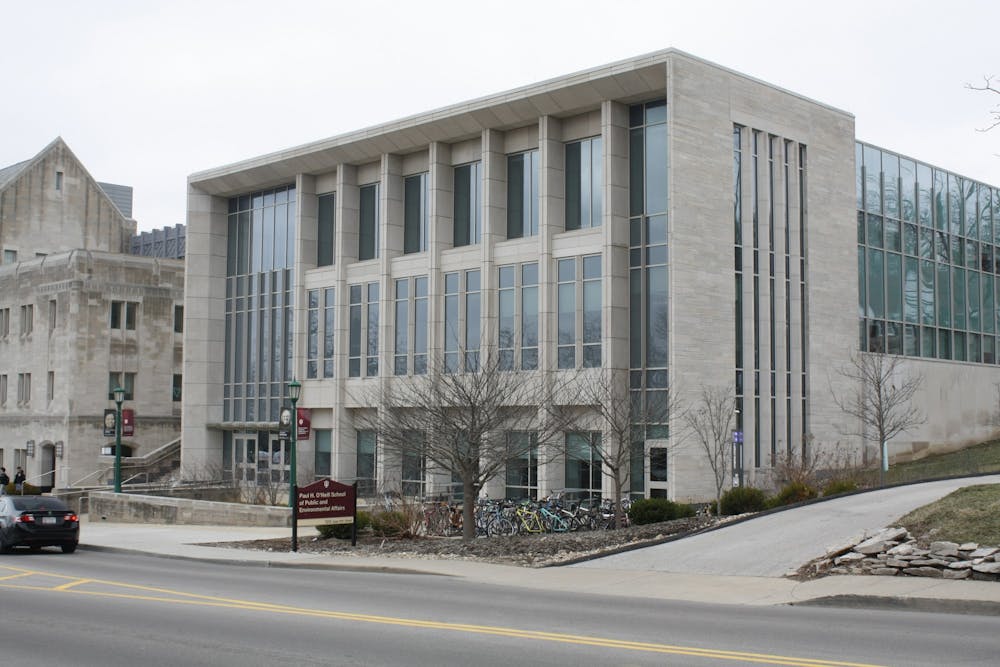John Karaagac, senior lecturer at the Paul H. O’Neill School of Public and Environmental Affairs, and IU senior Gabriel Burdeen are running the O’Neill School’s first national security simulation on March 22, 24 and 29th.
The simulation is being run as a part of Karaagac’s class on national security and bureaucracy. Karaagac is working with the O’Neill school’s Director of Undergraduate Studies about making the simulation a one credit course in the future, he said.
“I felt that the O'Neill school specifically, and more generally, Indiana University, needed more national security crisis simulation workshops or crisis simulation workshops,” Karaagac said.
A national security crisis simulation, Karaagac said, would deal with traditional security concerns, geopolitics and how state institutions like the military, CIA and Department of State would deal with it.
For the class exercise, students will form a national security council and will be presented with a crisis as it evolves through three stages. Students will take roles such as the White House Chief of Staff or the National Security Advisor and reflect the institutional dynamics of their roles.
Related: [President Biden nominates former IUPUI Chancellor for education department role]
Several roles, such as the Ambassador to France, Israel and China, are being played by people outside Karaagac’s class.
“These may be students in the Hamilton Lugar school who have regional interests or other schools and are interested in representing one country,” Karaagac said.
Karaagac said students are expected to understand the difficulty of policy-making decisions, the necessity of compromise and the constraints policy makers face.
“They tend to think that crafting policy solutions is often easier than it is.” Karaagac said “Often it's very unattractive and ugly and usually the options are between poor ones and less bad ones.”
Gabriel Burdeen, director and co-founder of the simulation, said one of the biggest things students in the class will learn from the exercise is how the national security council works.
Burdeen also said he wants to assess students, which the simulation will do by forcing them to create an argument and defend it with passion.
“Really that’s how I learned the best, is when people challenge me in a true way.” Burdeen said.
Clayton Greis, an IU senior majoring in international studies, will play the role of national security adviser for the simulation.
Related: [IU students help out with newly expanded climate change project]
While Greis does have experience in crisis simulations due to his involvement in Model United Nations, his preparation for the simulation has mainly involved researching different national security advisors he could emulate.
“I feel like I'm only prepared because I'm in Model UN, and I do crisis simulations in Model UN, so I kind of already know what the process is on that,” Greis said.
Greis said he could be a consensus leader and act as a neutral conduit for everyone's opinion, or he could really shape the room, which is what he leans towards.
“Because you lead the meeting so you can call different people and shape a narrative,” Greis said.
Practical exercises such as the simulation are important because students are actually getting to act out what the federal government does, which is important for anyone who wants to go into federal service, Greis said.
“It’s not just completing a worksheet or writing a paper about it.” Greis said. “We're actually doing it.”




